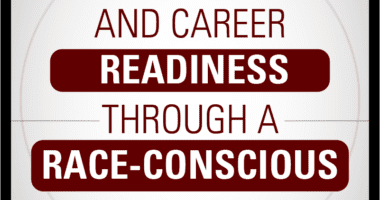Two Stories That Prove Access to Higher Ed Courses Can Provide a High-Quality Education
All students deserve the opportunity to thrive. One way is to give high schoolers early access to college-level courses.
Dual-enrollment programs are a powerful tool that equals the playing field for students who come from lower-performing schools and underserved communities. Dual enrollment allows students to take college-level courses while still in high school to earn college credit. Not only do students get a head start on their education before college but by taking college-level courses gives students academic confidence. These two stories, from a current and former high school student in Louisiana, speak to the power of implementing pathways for students to receive higher education in a high school setting and the opportunities they create.
Joshua: My experience as a current Bard Early College (BECNO) student at Frederick Douglass High School, has been revolutionary to say the least. I have seen myself grow from someone who was only worried about passing my academic classes and joining the STEM field, to now being challenged to think outside the box with a newfound love for the humanities and law. Prior to BECNO, I didn’t realize how the standardized high school structured courses were limiting my ability to think critically and creatively. Since joining BECNO, I have more opportunities to learn about a broad range of complex topics and issues. Bard has allowed me to grow and find my learning style and interests outside of typical high school courses. From unique and specialized courses, teachers who encourage more freedom of thought, and more task-oriented work; the school environment at Bard has made my dual-enrollment experience enjoyable. Outside of academics, BECNO has become a community where I feel safe being myself and at the same time learn about others on a deeper level due to the smaller size.
Anika: My experience as an early college student was one that completely changed the trajectory of my education. During my time at BECNO, I learned to analyze complex topics and engage in discourse that pushed me to think critically. I remember when taking my seminar class, the first question my professor asked was, “What does it mean to be human?” I remember sitting next to one of my friends and looking at her in confusion. I was thinking to myself, “What is she talking about? Being human means being alive, how can we shape a whole class around such a simple question?” Bard was the first time I even thought about how society shapes our experiences, how other people and systems inform how we move and react in the greater world, or how simple questions have the power to make us reflect deeply about the world around us. Before BECNO, I thought choosing a major was about choosing something “practical” that would land a good office job. My experience in a dual-enrollment setting gave me the confidence to go to college and study something I was truly passionate about: English literature. I never considered liberal arts as a practical area of study, but I now see the value in the ability to think critically and analyze complex material; two skills that have been incredibly useful throughout my professional career. After graduating high school and matriculating into the University of Southern Mississippi, I walked into my classes with a newfound sense of confidence knowing that I was a strong reader and writer and on the same academic level as my peers.
Why Dual Enrollment?
All students deserve the opportunity and access to dual-enrollment courses and early college. Dual enrollment allows students to explore their interests in college-level courses, to learn in rigorous class environments outside of a typical high school class structure, develop analytical skills, build confidence while building a sense of community and belonging. Being part of a diverse community where students can explore academically, socially, and personally has many benefits that many high schools can’t offer alone. Taking dual-enrollment courses gives students the chance to thrive in a collegiate environment and learn valuable skills such as time management, accountability, responsibility, and taking ownership of learning.
To prepare students to succeed in the 21st century workforce, state and district leaders must create pathways and partnerships to make dual enrollment accessible for all students, and ensure the rigor and skills needed are preparing students for college and beyond.
Because what is equity without access?
Joshua Hudson is a New Orleans native and current second-year student attending Frederick Douglass High School, a part of Bard Early College New Orleans (BECNO).
Anika Butler is a New Orleans native and a graduate of the New Orleans Charter Science and Mathematics High School and the University of Southern Mississippi and Relay Graduate School of Education. Anika currently works as a program coordinator for the Youth Empowerment Project and is a part-time student at Loyola University New Orleans College of Law.


